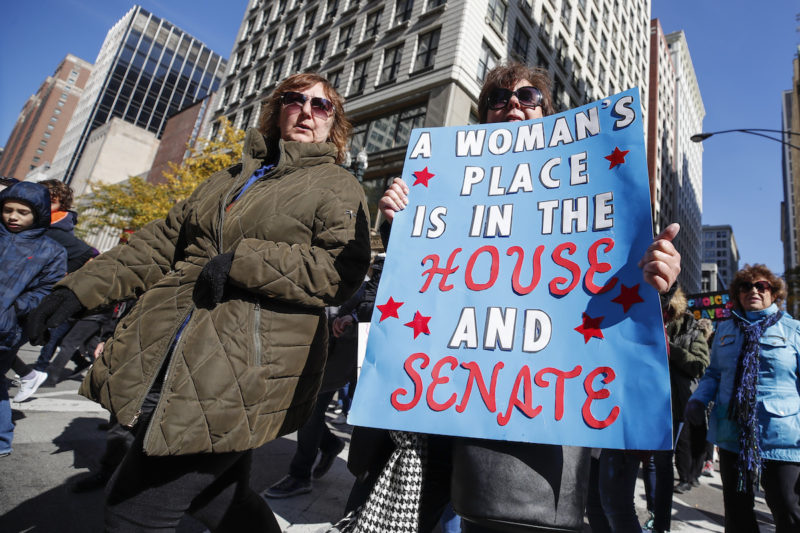Bob Bland: Working Moms, Running in Midterms, Are the Nation-Builders We Need
We’ve heard that the 2018 midterms are bringing a women’s wave into office. But they’re also bringing with them a mother’s wave—and all of us, as well as our children, will stand to benefit.

Thirty-six-year-old Gayatri Agnew knew she wanted to be part of the “blue wave” to help take back the Arkansas State Legislature. The senior director at a corporate foundation thought she might help look for the right candidate to support—maybe someone older who had the time and resources to channel toward a political campaign. As the mother of a 2-year-old and a 4-year-old, she didn’t even think, at first, of jumping into the race herself. But as Gayatri began to look around for a woman who could challenge the Republican in her district, she realized that she might be the candidate she was looking for.
In the upcoming midterms, we have the chance to support entirely new kinds of campaigns—campaigns run by young people, grassroots organizers, women of color, and the most diverse slate of candidates we’ve seen in recent U.S. history. In particular, we have the chance to support an unprecedented number of working moms who are running for office. In the 2018 midterms, 256 women are running for Congress, and stories like Agnew’s show that many of these candidates are young moms. We are seeing a rapid increase in women who know that they need to change our power structures now so that their children can live in a stronger, more equal, and better-functioning democracy.
As a parent, I know that mothers are the nation-builders we need. Mothers do the labor—emotional, mental, manual, and so much more—to nurture the country’s future. Beyond the work we put in throughout the day to sustain our families and create the change we seek, the dinner-table conversations we lead and the bedtime books we read are educating tomorrow’s voters, activists, and citizens.
No one is more uniquely invested in this country’s future than a young mom. When I mobilize with the Women’s March and take to the streets to protest, I am working in solidarity with the most vulnerable communities in this country, communities who are most exposed to the Trump administration’s bigotry, misogyny, and hate. I’m also organizing to build a country where my daughters can flourish. I believe that they deserve a home defined by racial equality, immigrant rights, access to health care and education, and an end to sexual violence.
When I was arrested protesting Brett Kavanaugh’s confirmation, alongside my own mom, I knew that I wanted to be able to tell my daughters and granddaughters that I put everything on the line to stop an abuser from being appointed to the U.S. Supreme Court.
For centuries, the labor mothers put into nation-building has been entirely unpaid and largely unrecognized. The work of care-taking and childrearing can amount to upwards of 56 hours a week, more than a full-time job—and many moms are working those too. As more young mothers run for office, we should recognize how distinctively qualified these women are for the nonstop nature of politics. These are women who are well accustomed to demanding and often thankless labor.
Research has long shown that households run by female breadwinners are more financially stable than those run by men. A 2011 study from the World Bank showed that when a woman controls a household’s income, more money goes to education, health care, and investment in the family’s future; in male-controlled households, much of those funds get diverted to alcohol and entertainment. Women know how to balance a family’s complex needs, from the emotional to the economic.
Feminist scholar and psychologist Carol Gilligan writes that women in leadership positions have a distinctive voice and value set. They are deeply attuned to others’ emotional needs, especially those who are most vulnerable. She argues that women approach problem-solving, and especially ethical dilemmas, with a nuanced, empathic perspective that men in leadership positions don’t always possess.
As we mobilize to get more women than ever into office, I know that we will see the pay-off in the long term as our communities grow and thrive. The women, especially the mothers, whom we elect into office will continue to listen, hear constituents’ experiences, and advocate for our futures.
We’ve heard that the 2018 midterms are bringing a women’s wave into office. But they’re also bringing with them a mothers’ wave—and all of us, as well as our children, will stand to benefit.
